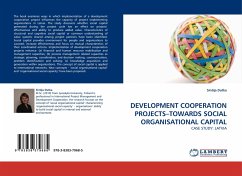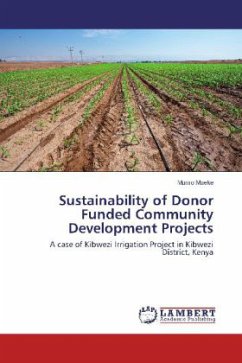
DEVELOPMENT COOPERATION PROJECTS-TOWARDS SOCIAL ORGANISATIONAL CAPITAL
CASE STUDY: LATVIA
Versandkostenfrei!
Versandfertig in 6-10 Tagen
32,99 €
inkl. MwSt.

PAYBACK Punkte
16 °P sammeln!
The book examines ways in which implementation of a development cooperation project influences the capacity of project implementing organisations in Latvia. The study discovers whether social capital generated during the project cycle has an effect on projects' effectiveness and ability to produce added value. Characteristics of structural and cognitive social capital or common understanding of value systems shared among project partners have been identified. Social capital provides environment for people and organisations to succeed, increase effectiveness and focus on mutual characteristics ...
The book examines ways in which implementation of a development cooperation project influences the capacity of project implementing organisations in Latvia. The study discovers whether social capital generated during the project cycle has an effect on projects' effectiveness and ability to produce added value. Characteristics of structural and cognitive social capital or common understanding of value systems shared among project partners have been identified. Social capital provides environment for people and organisations to succeed, increase effectiveness and focus on mutual characteristics of their coordinated actions. Implementation of development cooperation projects enhance: (a) financial and human resource mobilisation and management capacities; (b) process management related capacities as strategic planning, coordination, and decision making, communication, problem identification and solving; (c) knowledge acquisition and generation within organisations. The concept of social capital is applied to international networks. New concepts - social organisational capital' and organisational social capacity' have been proposed.












